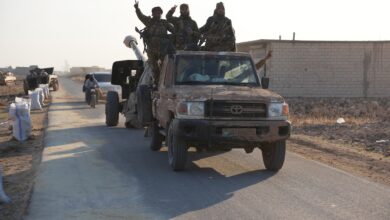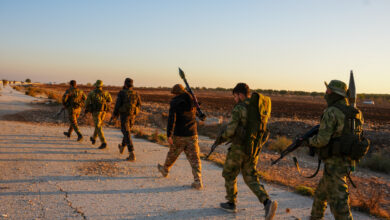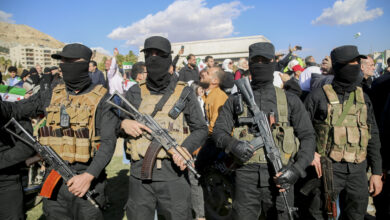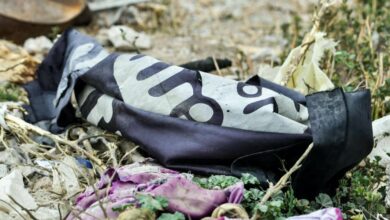IS Kills 3 Pro-Government Fighters in Syria Desert: Monitor
Islamic State jihadists killed three fighters loyal to the Damascus government in an attack in the Syrian desert on Tuesday, a war monitor said, the latest such deadly assault.
The IS members attacked “a munitions depot in the Palmyra area in the east of Homs province,” said the Syrian Observatory for Human Rights.
“Three pro-regime fighters were killed” and eight others wounded, some in critical condition, said the Britain-based monitor, which has a network of sources inside Syria.
The attack “comes amid a considerable escalation of IS operations against regime forces in the Syrian desert,” known as the Badia, the Observatory added.
Despite losing its last piece of territory in Syria in 2019, IS has maintained hideouts in the vast Syrian desert from which it has carried out ambushes and hit-and-run attacks.
The jihadist group, which announced a new leader earlier this month, has been blamed for a string of deadly attacks on government loyalists in recent weeks.
On Thursday, 33 Syrian soldiers were killed when IS ambushed their bus in the desert near Mayadeen, in Deir Ezzor province, the Observatory said, calling it the extremists’ deadliest attack on government forces this year.
Days earlier, 10 loyalists were killed in an IS attack in Raqa province, the jihadists’ former stronghold in Syria, the Observatory reported at the time.
Also this month, the jihadists attacked a convoy of oil tankers guarded by the army in the Syrian desert, killing seven people including two civilians.
On August 3, IS announced the death of its leader and named his replacement — the group’s fifth chief — Abu Hafs al-Hashimi al-Qurashi.
The Observatory has said the escalation in attacks is an attempt by IS to show it is “still active and powerful despite the targeting of its leaders.”
Syria’s war broke out after President Bashar al-Assad‘s government crushed peaceful pro-democracy protests in 2011. It has since drawn in foreign powers and global jihadists.
The conflict has killed more than 500,000 people and driven half of the country’s pre-war population from their homes.










